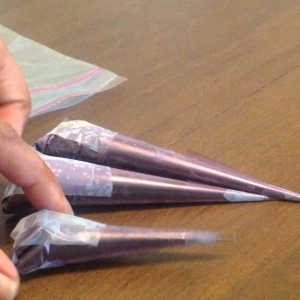Medical education is rapidly evolving, with significant changes in the way healthcare professionals are trained and prepared for the challenges of modern healthcare systems. As the world faces new healthcare challenges and technological advancements, medical education is adapting to ensure that practitioners are equipped with the right knowledge and skills. The need for skilled healthcare professionals has never been more pressing, and the ways in which they are trained are becoming increasingly diverse and specialized.
Expert Market Research: The Changing Dynamics of Medical Education
According to Expert Market Research, the medical education industry size is undergoing rapid changes, particularly in response to technological advancements and a growing demand for specialized skills. These shifts are creating new opportunities for both educational institutions and healthcare providers to enhance training programs. In particular, online and virtual learning tools are gaining popularity, enabling students to access high-quality content from anywhere in the world.
The increasing need for specialized medical professionals is fueling the growth of medical education initiatives aimed at providing targeted training in specific fields. The demand for certifications, continuing medical education (CME), and specialization programs is growing rapidly, as healthcare systems around the world focus on improving patient care. Expert Market Research highlights that regions with high healthcare needs, such as emerging economies, are expected to see a rise in demand for affordable and accessible medical education solutions.
This dynamic shift is creating a growing market for innovations that address both the educational needs of medical professionals and the healthcare demands of populations worldwide. As technology continues to advance, so too does the ability to train medical professionals with more accuracy, flexibility, and accessibility.
The Shift Towards Technology-Driven Learning
Technology has been a major driver in the transformation of medical education. Virtual reality (VR), augmented reality (AR), and simulation-based learning are reshaping how medical students and professionals gain hands-on experience. These technologies provide a safe, controlled environment where learners can practice procedures, diagnose conditions, and interact with patients without the risks associated with traditional clinical training.
Incorporating these innovations into the curriculum allows students to engage with complex medical scenarios, enhancing their practical skills while gaining deeper insights into patient care. Furthermore, online learning platforms have gained traction, offering flexible learning options for medical students, professionals, and even those seeking specialized certifications. These platforms are helping to democratize access to medical knowledge, especially in regions where traditional education may be limited.
E-Learning: Expanding Access to Medical Knowledge
E-learning has become an essential tool in medical education, allowing students and healthcare professionals to access materials, courses, and certifications online. From virtual classrooms to interactive webinars, the growth of online education is reshaping the traditional medical school experience. These digital platforms offer flexibility for working professionals who want to advance their skills without disrupting their careers.
Furthermore, online medical courses provide an opportunity to specialize in niche areas of medicine, such as cardiology, orthopedics, or public health, at the student’s own pace. Many institutions are partnering with technology companies to offer more interactive and engaging online learning environments, integrating video lectures, case studies, and live Q&A sessions with medical experts.
The Rise of Personalized and Simulation-Based Training
Simulation-based training is becoming more sophisticated, offering learners the chance to practice real-world scenarios without real-world consequences. These simulations are powered by AI and machine learning technologies that can adapt scenarios based on the learner’s progress, ensuring that students are constantly challenged and exposed to diverse cases.
Personalized education is also on the rise, with adaptive learning technologies that tailor the curriculum to individual learning speeds and styles. This ensures that each medical student or professional receives training that is best suited to their needs, which can ultimately lead to better outcomes in terms of skills and knowledge retention.
The Role of Continuing Medical Education
The landscape of medical education extends beyond traditional academic institutions. Continuing medical education (CME) programs have become crucial for doctors and healthcare professionals who need to stay up-to-date with the latest advancements in medicine and healthcare practices. With medical knowledge evolving at a rapid pace, CME offers a way for healthcare providers to continually learn new techniques, treatments, and guidelines, which is essential for maintaining competency in the field.
CME programs are available in various formats, including online courses, in-person workshops, and medical conferences. These programs are designed to help professionals not only refresh their knowledge but also specialize in new areas of medicine, making them indispensable for career development and professional growth.
The Impact of Healthcare Reforms on Medical Education
As healthcare systems evolve, so too must the way healthcare professionals are trained. Healthcare reforms, such as the shift towards value-based care and the growing emphasis on patient-centered approaches, are influencing the direction of medical education. These reforms require healthcare providers to have a broader skill set, including knowledge of healthcare economics, ethics, and interprofessional collaboration.
Medical education institutions are adapting their curricula to meet these changing demands. For example, programs are increasingly incorporating content on population health management, medical ethics, and healthcare policy, ensuring that future healthcare professionals are equipped to navigate complex healthcare environments.
The Future of Medical Education
The future of medical education looks promising as it continues to adapt to new technologies, healthcare demands, and societal shifts. Virtual reality, simulation-based training, e-learning, and personalized education are all reshaping how medical professionals are trained. As the demand for skilled professionals grows, the need for flexible, accessible, and innovative educational models will become even more important.
Institutions that invest in new technologies and methodologies will be well-positioned to meet the demands of the modern healthcare system. With the right balance of traditional training and innovative techniques, the future of medical education is bright, paving the way for more skilled professionals and improved patient care.











